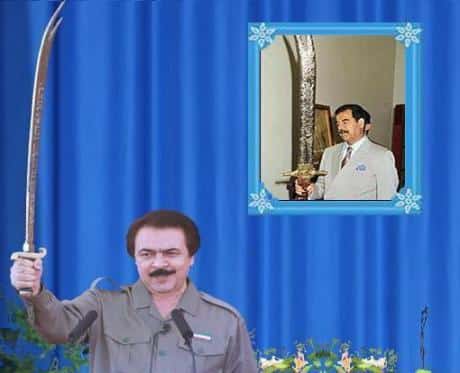Predictably, the Istanbul talks have ended without positive results. And, it seems clear that the discussion came to a dead end over two issues:
- the Islamic Republic wanted explicit recognition of its right to enrich uranium which the United States (at least) was not prepared to do; and
- the United States proposed a plan for refueling the Tehran Research Reactor that was more demanding on and less rewarding for Iran than the plan advanced last fall.
As it is not clear when the P-5+1 might meet again with the Iranians and the Obama Administration’s efforts to “engage” Tehran are increasingly being written off as a failure, public discourse in the United States is already turning to a consideration of non-diplomatic “next steps.” The Obama Administration will almost certainly push to expand U.S. and international sanctions against the Islamic Republic. Beyond that, we also anticipate that there will be increasing calls for the Administration to embrace “regime change” as the declared goal of America’s Iran policy.

|
On this front, one of the more noteworthy developments is an accelerating campaign to remove the mojahedin-e khalq, or MEK, from the U.S. Government’s list of foreign terrorist organizations. Over the last few months, a number of prominent Republicans — including John Bolton, Newt Gingrich, Rudy Giuliani, former Attorney General Michael Mukasey, former White House homeland security and counterterrorism coordinator Fran Townsend, and new House Foreign Affairs Committee chair Rep. Ileana Ros-Lehtinen — have been publicly agitating to delist the MEK. But this effort has now gone bipartisan and big time, including engaging the services of a Washington, DC consulting firm.
To document this last point, we link here to the video of an event held in Washington last week, clearly designed to build public support for delisting the MEK as part of a U.S.-led campaign for regime change in Tehran. The event was organized by Executive Action, LLC, which describes itself as “a McKinsey & Company with muscle, a private CIA and Defense Department available to address your most intractable problems and difficult challenges.” (Exactly who engaged Executive Action’s services for this event is not clear.) Featured speakers included not only Republican figures like Mukasey, but also retired U.S. Marine Corps General Anthony Zinni; former New Mexico Governor, Clinton Administration cabinet officer, and Democratic presidential candidate Bill Richardson; former Democratic New Jersey Senator Robert Torricelli; and retired Marine Corps General James Jones — who just stepped down, in November 2010, as President Obama’s first national security adviser. All of the speakers argued for bringing down the Islamic Republic and forging a new political order in Iran — and for embracing the MEK as the foundation of a new Iranian “opposition” capable of bringing about both of these objectives.
History, Mark Twain allegedly observed, doesn’t repeat itself — but it does sometimes rhyme. We are struck by how much the ongoing campaign to rehabilitate the MEK in Washington, as part of a broader, regime-change-in-Iran strategy, “rhymes” with a similar campaign in the 1990s and early 2000s to promote Ahmad Chalabi’s expatriate Iraqi National Congress (INC) to overthrow the Iraqi government. That campaign featured high-profile Washington lobbyists, lawyers, and public relations specialists, extensive use of media, and the recruitment of high-profile political figures and former U.S. Government officials to sell both the dangerous idea that coercive regime change was the optimal U.S. policy option and a completely detached-from-reality assessment that Chalabi and the INC could deliver on the ground in Iraq. The United States will truly deserve what it gets if it falls for this again with regard to the MEK and Iran.
Jones’ participation in the event is particularly appalling, and should unsettle those who reflexively defended the seriousness of President Obama’s commitment to “engage” Tehran and kept insisting that Obama’s approach to Iran was fundamentally different from that of George W. Bush. After listening to his remarks, we challenge anyone to make the case that, for the Obama Administration, “engagement” with the Islamic Republic was ever anything but a Dennis Ross-style, “check the box” exercise.
Flynt Leverett directs the Iran Project at the New America Foundation, where he is also a Senior Research Fellow. Additionally, he teaches at Pennsylvania State University’s School of International Affairs. Hillary Mann Leverett is CEO of Strategic Energy and Global Analysis (STRATEGA), a political risk consultancy. She is also Senior Lecturer and Senior Research Fellow at Yale University’s Jackson Institute for Global Affairs. This article was first published in The Race for Iran on 23 January 2011 under a Creative Commons license.
| Print
